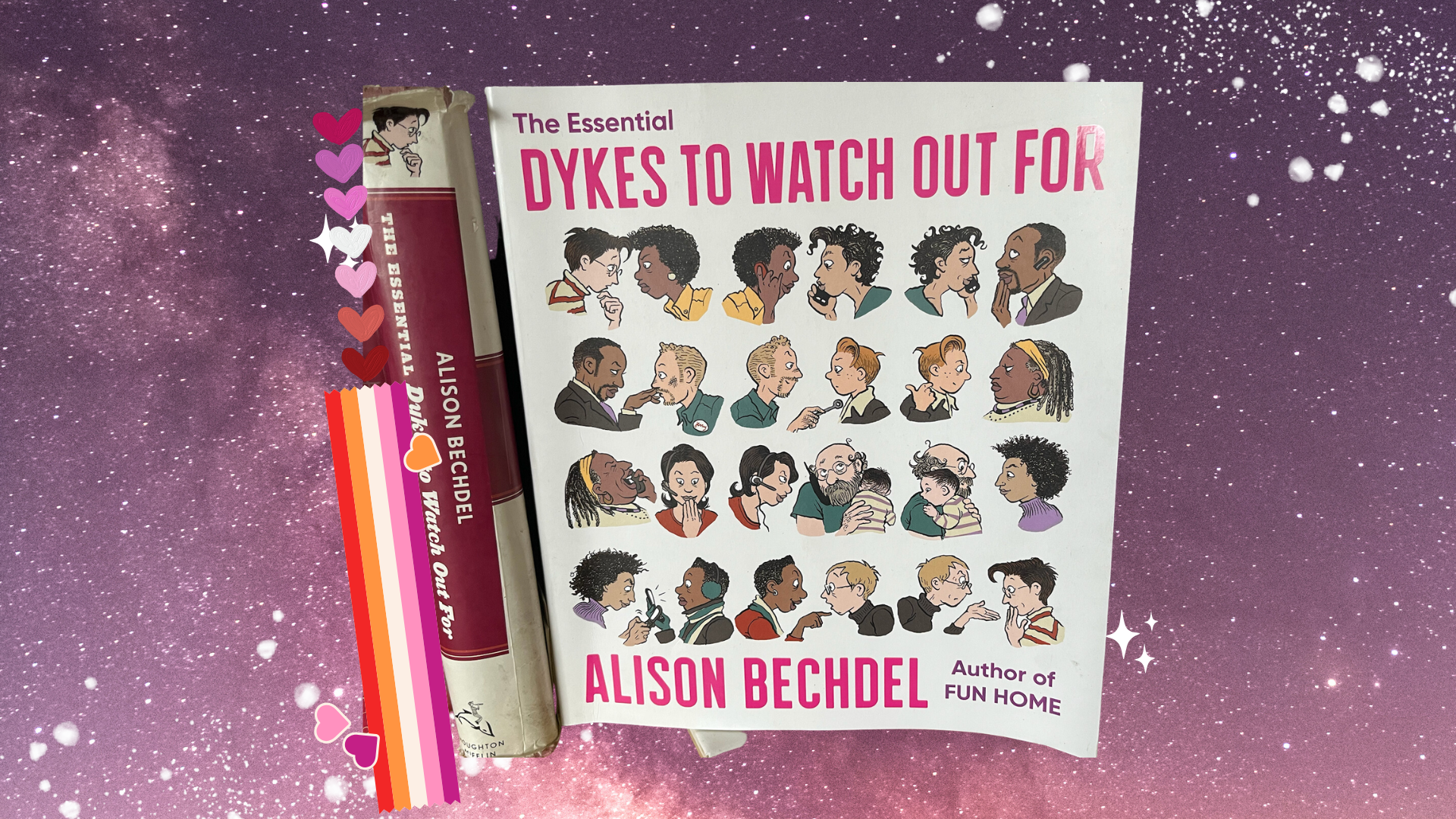The queer community can be a lonely place sometimes. In fact, it can be a lonely place all the time, especially if you’re constantly on the lookout for that mythical land of neverending brunches at Debbie’s diner or unrealistically lavish pre-work breakfasts at The Planet promised to us by the queer shows that gave us a first glimpse at adult queer life.
Personally, I’ve never had a group of friends like that. Try as I might, I’ve never been able to turn my life into a sad, trans version of “Sex and the City,” despite deeply wanting that for myself. The consolation is that I’m in good company. In 1983, Alison Bechdel felt the same way. So she created her own community, on the page. The result was the beloved, long-running comic strip “Dykes to Watch Out For,” which celebrates its 40th birthday today.
It’s impossible to overstate the good that “Dykes to Watch Out For” has done for lonely queers everywhere. Those of us dreaming of community can always fall back into the melodramatic, chaotic world of Mo, Lois, Ginger, Toni, Claudia, and Jezanna, the politically-conscious, sexually-neurotic group of (maybe) Minneapolis dykes who—much like 2020 queers—spend most of their time talking about sex, dating, and the total deterioration of American society from the Reagan era onward. Cracking open my well-worn copy of “The Collected Dykes to Watch Out For” is a beloved pastime—not a year goes by when I don’t revisit the comics again. And each time I do, it feels like I’m visiting old friends.
RelatedIt was like fighting for my life for no reason.
But DTWOF isn’t just Szechuan pulp for the gay soul—throughout the strip’s consistent 30-year run, we see characters grow out of immaturity and face some of their deepest internalized prejudices. It’s not always comfortable to hear a beloved character like Mo rail against trans people—but it makes it that much better when she comes around to the right side of things. And when characters get too preachy or complacent, they always end up learning and growing, becoming better versions of themselves while remaining recognizable, familiar faces guiding us through our own rocky stages of queer development.
No matter how many times I watch Ginger’s dog die, or read about Jezanna’s dream of acceptance right before her mother passes away, or watch Mo meet her match in the pretentious but sweet academic Syd, it will never get old. I’ve bought the collected DTWOF for several friends, especially in times of grief. Because these characters aren’t just constantly dreaming of a better world: they are a better world. Their fictional community is a fantasy of queer chosen family that feels realer than just about anything I’ve seen or read since. It was written during a time when corporations didn’t change their logos to rainbows every June 1st and long before the concept of trans people was a right-wing fearmongering tactic. Bechdel created those strips tirelessly for decades, all while writing her subsequent book-length masterpieces, 2008’s “Fun Home” and 2012’s “Are You My Mother,” as well as 2021’s “The Secret To Superhuman Strength.” Every time a newspaper closed up shop, Bechdel found a new home for Lois, Mo, Ginger, and Sparrow. Because they needed life, and we needed them.
We still do.













